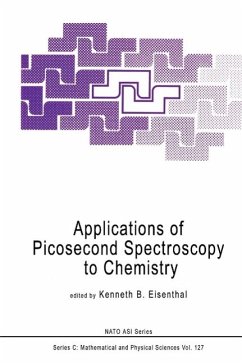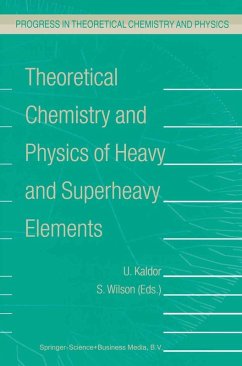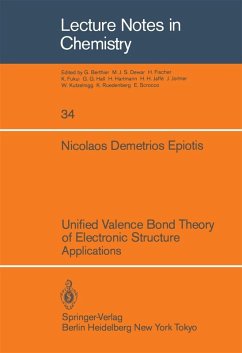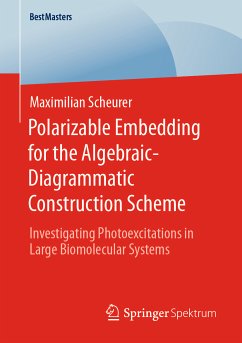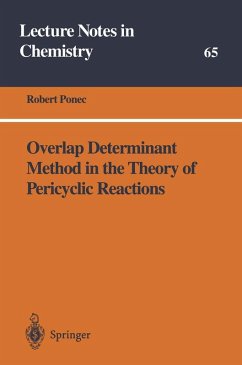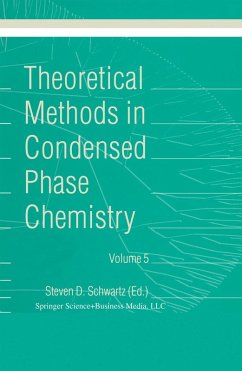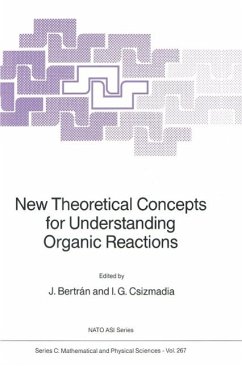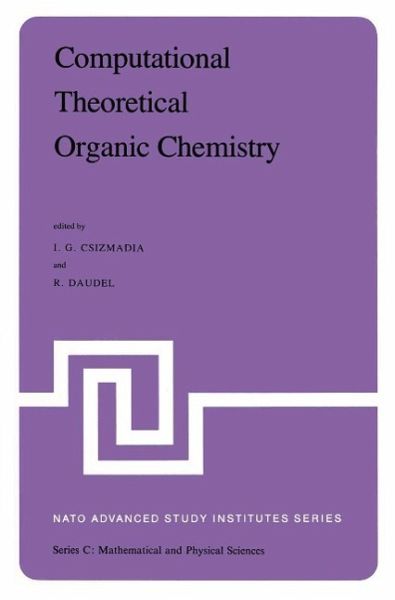
Computational Theoretical Organic Chemistry (eBook, PDF)
Proceedings of the NATO Advanced Study Institute held at Menton, France, June 29-July 13, 1980
Redaktion: Csizmadia, Imre G.; Daudel, R.
Versandkostenfrei!
Sofort per Download lieferbar
40,95 €
inkl. MwSt.
Weitere Ausgaben:

PAYBACK Punkte
20 °P sammeln!
As a general rule any interdisciplinary subject and that includes Computational Theoretical Organic Chemistry (CTOC) incorporates people from the two overlaping areas. In this case the overlaping areas are Computational Theoretical Chemistry and Organic Chemistry. Since CTOC is a relatively young science, people continue to shift from their major discipline to this area. At this particular time in history we have to accept in CTOC people who were trained in Computational Theoretical Chemistry and do not know very much about Organic Chemistry, but more often the opposite case is operative Exper...
As a general rule any interdisciplinary subject and that includes Computational Theoretical Organic Chemistry (CTOC) incorporates people from the two overlaping areas. In this case the overlaping areas are Computational Theoretical Chemistry and Organic Chemistry. Since CTOC is a relatively young science, people continue to shift from their major discipline to this area. At this particular time in history we have to accept in CTOC people who were trained in Computational Theoretical Chemistry and do not know very much about Organic Chemistry, but more often the opposite case is operative Experimental Organic Chemistry who have not been exposed to Computational Theoretical Chemistry. This situation made NATO Advanced Study Institute in the field of CTOC necessary. The inhomogenity outlined above was present in the NATO Advanced Study Institute, held at Menton in July 1980, and to some degree it is noticable from the content of this volume. This book contains 20 contributions. The first contribution is an Introduc tion chapter in which the initiated experimental chemists are briefed about the subject matter. The last chapter describes very briefly the "Computational Laboratory" that was designed to help people with an experimental back ground in order to obtain some first hand experience. Between the first and the last chapters there are 18 contributions. These contributions were arranged in a spectrum from the exclusively method oriented papers to the applications of existing computational methods to problems of interest in Organic Chemistry.
Dieser Download kann aus rechtlichen Gründen nur mit Rechnungsadresse in A, B, BG, CY, CZ, D, DK, EW, E, FIN, F, GR, HR, H, IRL, I, LT, L, LR, M, NL, PL, P, R, S, SLO, SK ausgeliefert werden.



